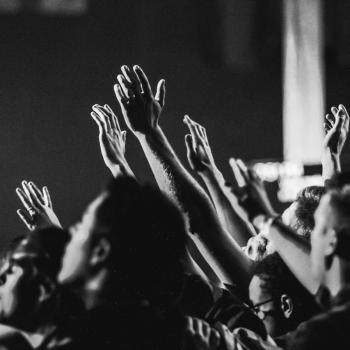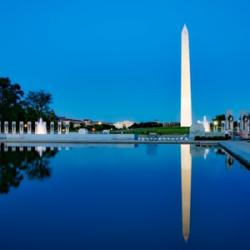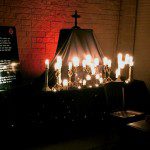There’s an interesting article in the New York Times about the trend of Christians giving their coming of age sons a bar mitzvah. It’s worth reading. I think that the evangelical tradition – perhaps above any other contingent of Christians – lack any sort of initiation rites at the key ages. What do you think of this?
Of all the surprises promised by the recent TLC reality show “The Sisterhood,” which followed the lives of five Atlanta preachers’ wives, the only one that truly amazed me was the Christian bar mitzvah, an event organized by Pastor Tara Lewis and her husband, Pastor Brian, for their son, Trevor. Brian was born to Jewish parents; Tara was not. Both are born-again Christians, and they’re of one mind about their son’s bar mitzvah as a Christ-centered take on the traditional Jewish coming-of-age ceremony.
In one episode of “The Sisterhood,” Brian and Tara plan the theme of the bar mitzvah cake. “How about Christ in the Torah?” Brian asks. “Amen,” Tara answers.
Their Jesus-fied version of the Jewish ritual is intended to celebrate both Trevor’s ethnic heritage through his father and, even more important, his spiritual identity through salvation. For, in the eyes of the Lewises and many fundamentalists like them, born-again Christians are in some sense more truly Jewish than actual Jews are.
…Obviously a reality show is no metric by which to judge the reality of anything, but when I dug into the concept of a Christian bar mitzvah — or a bar barakah, meaning “son of the blessing,” as Craig Hill calls it in his 1998 book on the subject — I discovered that the ritual is gaining traction among some evangelicals. It’s an outgrowth of the fundamentalist fascination with Judaism that has emerged and intensified since the publication of Hal Lindsey’s “Late Great Planet Earth” in 1970.
Lindsey’s book — a huge best seller — described an Armageddon theology in which the modern state of Israel stands as a fulfillment of biblical prophecy, setting in motion a series of events that will culminate with the second coming of Christ. Essentially Lindsey advocated a respect not just for Israel but also for the Jewish people, who were, after all, chosen of God. For many old-guard Protestants, who grew up hearing Jews described as “Christ-killers,” this shift was disorienting. It’s hard to overstate the traditional distrust, separatism and anti-Semitism that marked American fundamentalism until then. According to Robert Michael’s “Concise History of American Antisemitism,” Oliver Wendell Holmes, F. Scott Fitzgerald and Richard Wright were just three prominent 20th-century anti-Semites who later renounced their bigotry. Many others did not, even after the atrocities of World War II. Following a 1972 prayer breakfast, Richard Nixon concluded a conversation with Billy Graham by calling Jews an “irreligious, atheistic, immoral bunch of bastards.” Graham, a mainline evangelical leader widely considered to be reasonable and moderate, spoke of a “synagogue of Satan” and denounced the Jewish “stranglehold” on the media.
These days, though, mainline Protestants are borrowing from Jewish tradition. For example, Kevin Ibanez, a pastor at Sunrise Church in Rialto, Calif., started wondering along with his wife why there was no male equivalent to the quincineras thrown for girls in Hispanic families for their 15th birthdays. So they decided to give their son, Joshua, a Christian-inflected version of the bar mitzvah to help prepare him for adulthood. In the lead-up, Joshua studied Hebrew and the Scripture with a Messianic friend of the family’s. At the event, he wore a prayer shawl and sang the Sh’ma Yisrael.
Rabbi Eliot Pearlson of Temple Menorah, a traditional conservative synagogue in Miami Beach, tells me that he began to notice non-Jews borrowing the traditions and trappings of his faith roughly 20 years ago. He has encountered Christians holding seders, being married under chuppahs and wearing prayer shawls over their clothes. He says some Christians wear zizit with red thread rather than blue to symbolize the blood of Christ. And a growing number of evangelicals travel to Israel partly to obtain Jewish ritual objects like skullcaps and rams’ horns.
















